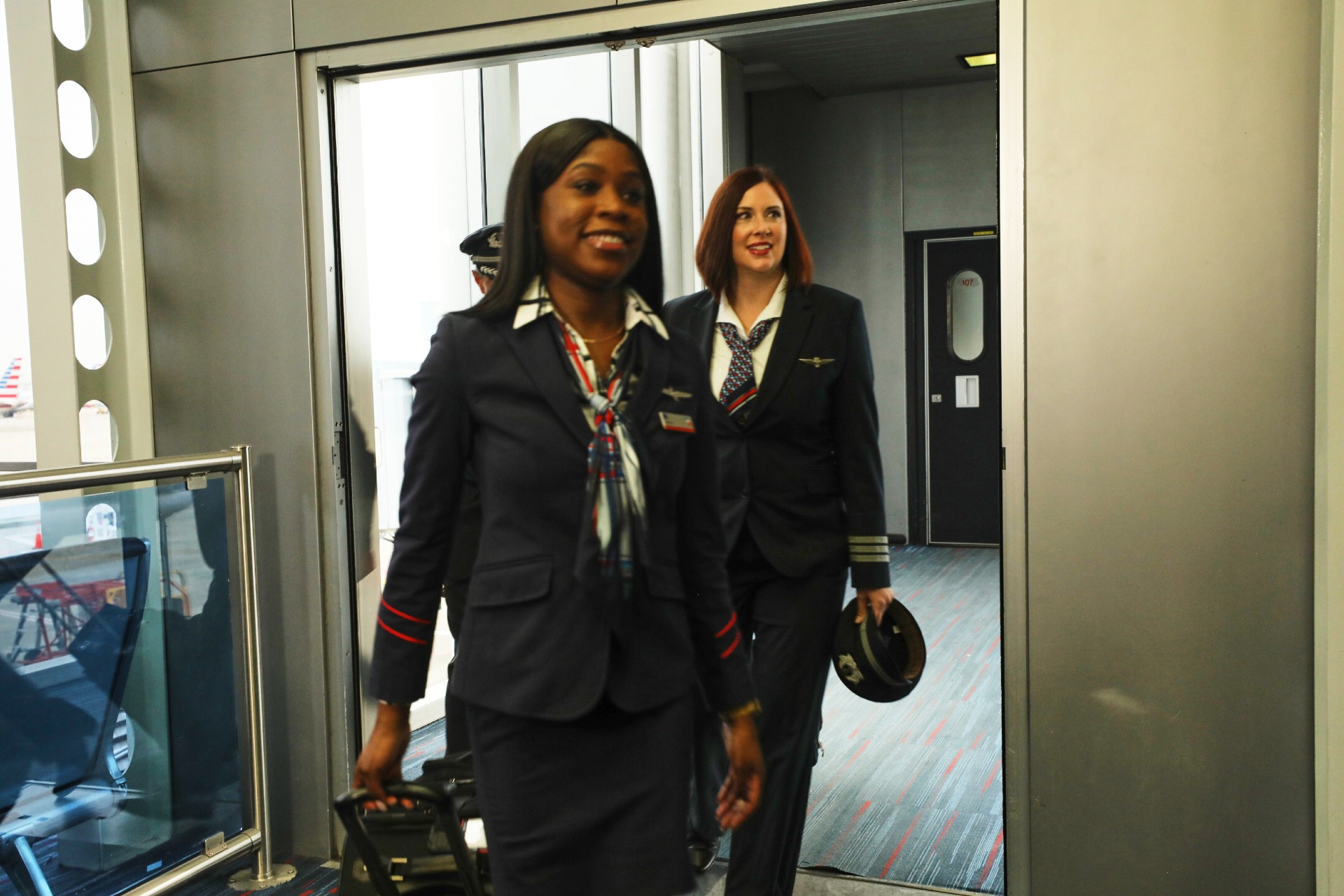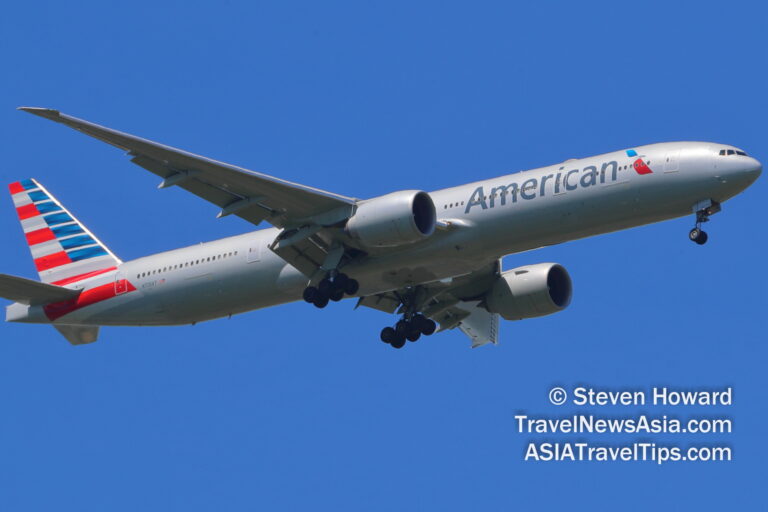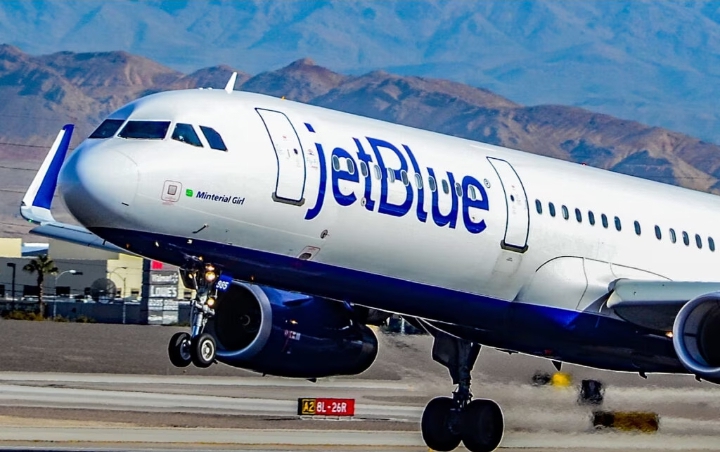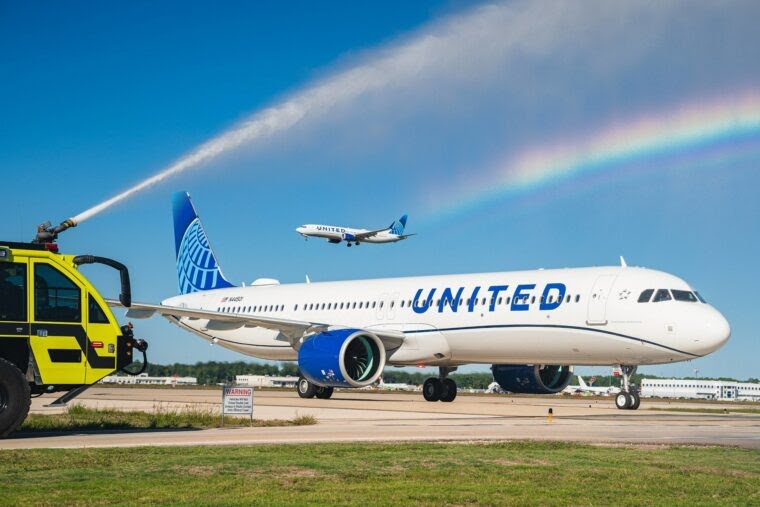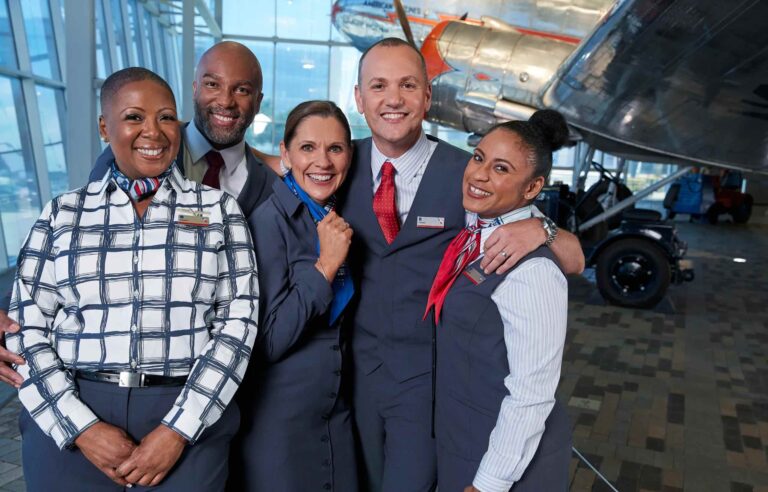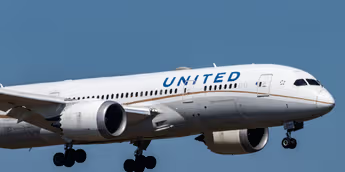American Airlines Flight Attendants Win 33% Pay Raise
DALLAS — American Airlines (AA) Flight Attendants (FA) won a 33% pay raise this week thanks to a new five-year tentative agreement green lit by the Association of Professional Flight Attendants (APFA) on Thursday.
The agreement benefits seasoned crew members, with only the most senior flight attendants receiving an immediate 20.5% salary increase. FAs with up to six years of service will receive an 18% wage increase, while crew members with seven to twelve years of service will receive an immediate 19% hike.
If the tentative agreement is ratified, the above salary increases will be followed by a 2.75% raise after year one, a 3% pay raise after years two and three, and a final 3.5% pay raise in the fifth and final year of the agreement.
New FA hirees’ hourly salaries will increase from US$30.35 to US$35.82. Senior flight attendants with at least 13 years of experience will see their hourly compensation rise from US$68.25 to US$82.24, peaking at more than US$92 per hour at the end of the five-year contract.
Flight Attendants will also get boarding compensation for the first time in the form of a top-up payment of up to US$100, based on their seniority. The deal includes retroactive pay to cover the period since 2020, when the flight attendant contract became amendable.
American Airlines (AA) flight attendants have secured a significant pay raise, thanks to a new five-year tentative agreement approved by the Association of Professional Flight Attendants (APFA). This agreement promises a 33% overall pay increase for AA flight attendants, marking a substantial step forward in compensation and benefits for these essential airline employees.
Key Details of the Agreement
The agreement’s structure is designed to benefit flight attendants at various stages of their careers. Notably, the most senior flight attendants will receive an immediate 20.5% salary increase. Those with up to six years of service will see an 18% wage hike, while crew members with seven to twelve years of service will enjoy a 19% increase. This tiered approach ensures that all flight attendants receive meaningful salary enhancements, reflecting their tenure and experience with the airline.
Beyond the initial increases, the tentative agreement outlines a series of scheduled raises throughout its five-year duration. After the first year, flight attendants will receive a 2.75% raise, followed by a 3% increase after the second and third years. In the fifth and final year of the agreement, they will receive a 3.5% raise. This progressive structure ensures continued financial growth and stability for AA flight attendants over the next several years.
Impact on New Hires and Senior Flight Attendants
Newly hired flight attendants will see their hourly salaries rise from $30.35 to $35.82. This significant increase makes the position more attractive to prospective employees and reflects the demanding nature of the job. For senior flight attendants with at least 13 years of experience, the hourly compensation will increase from $68.25 to $82.24. By the end of the five-year contract, these seasoned professionals could see their hourly wages exceed $92, a substantial improvement in their earning potential.
Boarding Compensation and Retroactive Pay
In a notable development, the agreement introduces boarding compensation for the first time. Flight attendants will receive a top-up payment of up to $100, based on their seniority, for their efforts during the boarding process. This new compensation acknowledges the critical role flight attendants play in ensuring a smooth and efficient boarding experience for passengers.
Additionally, the deal includes retroactive pay covering the period since 2020, when the flight attendant contract became amendable. This provision ensures that flight attendants are compensated for the time they have worked without an updated contract, addressing a long-standing issue and providing financial relief for many employees.
Broader Implications for the Airline Industry
The agreement between American Airlines and its flight attendants reflects broader trends within the airline industry, where labor relations and employee compensation have become increasingly prominent issues. The COVID-19 pandemic significantly impacted the aviation sector, leading to widespread furloughs, layoffs, and financial challenges for both airlines and their employees. As the industry recovers, there has been a renewed focus on improving working conditions and compensation for airline staff.
For American Airlines, this agreement represents a strategic investment in its workforce. By offering competitive wages and benefits, the airline aims to attract and retain skilled flight attendants, ensuring high levels of service and operational efficiency. This approach is essential for maintaining customer satisfaction and loyalty in an increasingly competitive market.
Flight Attendant Responsibilities and Challenges
Flight attendants play a crucial role in the safety and comfort of airline passengers. Their responsibilities extend beyond the visible tasks of serving food and beverages; they are trained to handle a wide range of in-flight emergencies and to provide first aid when necessary. Additionally, flight attendants are responsible for ensuring compliance with safety regulations and assisting passengers with special needs.
The job of a flight attendant can be physically and emotionally demanding. Long hours, irregular schedules, and extended periods away from home are common challenges faced by airline crew members. Furthermore, flight attendants must navigate the complexities of working in a confined space, often dealing with difficult passengers and high-stress situations.
In this context, the new agreement’s provisions for increased pay and boarding compensation are significant. They recognize the demanding nature of the job and the essential services flight attendants provide. By offering better compensation, American Airlines acknowledges the value of its flight attendants and seeks to improve their overall job satisfaction and well-being.
The Role of the Association of Professional Flight Attendants (APFA)
The APFA has played a central role in advocating for better wages and working conditions for American Airlines flight attendants. As the representative body for these employees, the APFA negotiates contracts, addresses grievances, and works to protect the interests of its members.
The approval of the new tentative agreement by the APFA demonstrates the effectiveness of collective bargaining in securing improved compensation and benefits for workers. It also highlights the importance of having a strong, organized labor presence within the airline industry. Through their efforts, the APFA has helped to ensure that flight attendants receive fair pay and recognition for their contributions to the airline’s success.
Looking Ahead
As the tentative agreement moves toward ratification, American Airlines flight attendants can look forward to significant improvements in their compensation and benefits. The structured pay raises, boarding compensation, and retroactive pay provisions offer a comprehensive package that addresses both immediate and long-term financial needs.
This agreement sets a positive precedent for labor relations within the airline industry, demonstrating that collaborative negotiation can lead to mutually beneficial outcomes for both employees and employers. For American Airlines, investing in its flight attendants is a strategic move that will likely pay dividends in terms of improved service quality, employee retention, and overall operational success.
In conclusion, the new five-year tentative agreement between American Airlines and its flight attendants, approved by the APFA, represents a major milestone in employee compensation within the airline industry. With a 33% overall pay raise, significant increases for new hires and senior staff, and the introduction of boarding compensation, the agreement addresses key concerns and provides a path for continued financial growth and stability for flight attendants. This development underscores the critical role of flight attendants and sets a positive example for labor relations across the aviation sector.
